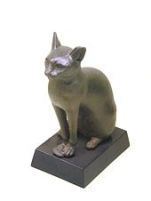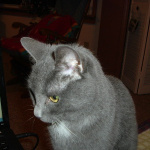Marian Allen's Blog, page 412
January 13, 2013
#SampleSunday – Deya from SAGE
Here is a bad guy for ya.
 When Landry, during one of Karol’s long absences, had converted the Swords from an honor guard to an all-male private army, Guthrie had joined. Every benefit he gained, he shared with his supporters, a wise investment which sped his promotion to Chief Sword. Enemies? A strong man always has enemies; a clever man leaves them dead or disabled.
When Landry, during one of Karol’s long absences, had converted the Swords from an honor guard to an all-male private army, Guthrie had joined. Every benefit he gained, he shared with his supporters, a wise investment which sped his promotion to Chief Sword. Enemies? A strong man always has enemies; a clever man leaves them dead or disabled.
Landry was quick to recognize Guthrie’s valuable qualities: deviousness, ruthlessness, a complete lack of scruples, brutality kept in check by ambition, and what Landry took to be blind loyalty. Landry had called upon those qualities when he decided the time was right for Karol to make way for a more attentive administrator.
Now the two men walked in silence for a while. The wind was strong and steady, bringing a touch of dampness with it, though Fiddlewood River flowed past some miles to the east.
“Suppose I had an enemy,” said Landry. “And suppose my enemy had a child. Suppose he hid this child at a baby farm, and no one knew which one, or under what name he’d left it.”
“Kill your enemy,” said Guthrie, “and the child is lost.”
“But suppose it’s prophesied the child will not stay lost. Suppose the child is fated to be my downfall. What then? How can I protect myself from a child I can’t find?”
“You can find it,” said Guthrie. “You just can’t identify it.”
“Find it for me,” said Landry.
“And when I have?”
“I don’t forget. Not help or hindrance.”
The Consort held out his hand. Guthrie clasped it, feeling that clasp raise him from hireling to friend, a feeling Landry’s strength lay in stimulating.
“I’ll give you a letter of empowerment,” said Landry. “Do what you must, and do it soon.”
Guthrie remained on the battlement when Landry left to compose his letter. What he must do was simple; how, would take some thought.
For Guthrie beren Melanell had dreams of his own. Not dreams of what he might do, but dreams of what he had done. He and his sword.
Guthrie drew his sword now, and held her across his knees. She caught the sun and flashed it into his eyes. She had been forged in Kozabir; Guthrie had taken her from a mercenary he killed in a border skirmish and had named her: Deya beren Blotha – Death, born of Blood.
They worked well together, he and Deya. They had served Layounna in the militia and now in Landry’s Swords. She sang when he drew her in battle. She sang when he wielded her; even the cries of her victims held a note of awful song.
In the night, in Guthrie’s dreams, she sang to him. The burden of the song was always death. Blood spattered his dreams. If he dreamed of flowers, they were red. If he dreamed of jewels, they were red. If he dreamed of earth, the clay was red. He dreamed of women, and he slew them. He dreamed of friends, and he slew them. Nothing he dreamed of lived, except himself – himself, and Deya’s voice.
He could almost hear her when he was awake now. She whispered of the blood in living things. He could almost see it pumping, could almost hear it buzzing in veins. He almost thirsted for it, but nearly choked with his dreams’ surfeit.
How to kill, and not kill? he asked himself. How to satisfy the Consort, satisfy himself, and keep it from his dreams? For he must keep these children from his dreams. He’d spilled the blood of children before in border skirmishes and the occasional ethnic rebellion in a District. The dreams that had followed had been most dreadful. That blood had clung to him, and it had burned like acid.
Whadda stinkeh, eh?
The Fall of Onagros, SAGE Book 1 got its first review yesterday — five stars, baby! ~kiki poinging~
“The Fall of Onagros deftly delivered on all these expected things, and offered up some unexpected delights.”
Imma havta choreograph a good review dance to go with my bejection dance and my asseptinss dance.
A WRITING PROMPT FOR YOU: A character tries to figure out how to do something mean without being blamed for it.
MA

January 12, 2013
#Caturday – De Cat Bastet
I love, love, love Elizabeth Peters’ Amelia Peabody mysteries! I love all the characters, especially the ones in the earlier books. My favorites are her son, “Ramses” and her first cat, Bastet.
Amelia Peabody and her husband, Radcliffe Emerson are Victorian Egyptologists, who met in the first book of the series, CROCODILE ON THE SANDBANK. My favorite book is probably THE MUMMY CASE, when Ramses, as an improbably precocious child, gets to come along and becomes inseparable from Bastet, whom everybody else generally calls “the cat Bastet” and Ramses calls, in one of his few babyisms, de cat Bastet.

Bastet from Wikipedia
The cat, of course, is named after Bastet, the Egyptian

Katya
cat-headed god of protection against infectious diseases and evil spirits. I’m all for that.
De cat Bastet was protection against anybody who wanted to hurt Peabody, Emerson, or, especially, Ramses.
This picture is from the Wikipedia entry on de goddess Bastet. I think she looks like my Katya, don’t you?
A WRITING PROMPT FOR YOU: A character is surprised to bond strongly with an animal.
MA

January 11, 2013
Cab and Cake
Because of that chicken dream the other night, I thought I would feature chickens today. And I will. But I’ll also post pictures of the swag the Southern Indiana Writers Group gave me to celebrate the publication of The Fall of Onagros, SAGE Book 1.
First, here is an article from The Smithsonian that tells you more than you probably want to know about the history of the chicken.
Me, I think chickens and eggs are gorgeous! Here’s a beautiful site with pictures of the many, MANY breeds of chicken with irresistible remarks like “the chipmunky blue-egger”.
Finally, you can’t talk about chickens without linking to Cab Calloway singing his catchy “A Chicken Ain’t Nothin’ But A Bird.”
It was a dish for old Caesar,
Also King Henry the Third,
But Columbus was smart, said “You can’t fool me,
A chicken ain’t nothin’ but a bird.”
 So the SIW met last night. Joanna Foreman brought me a cake. She didn’t trust the bakery to make the dragon right, so she printed it off and stuck it on a stick. It was a great touch!
So the SIW met last night. Joanna Foreman brought me a cake. She didn’t trust the bakery to make the dragon right, so she printed it off and stuck it on a stick. It was a great touch!
 Ginny Fleming brought me flowers and a mess o’ balloons. The baby teddy bears were in honor of Book 1; she said the only balloon she could find with a 1 on it was a baby’s first birthday one.
Ginny Fleming brought me flowers and a mess o’ balloons. The baby teddy bears were in honor of Book 1; she said the only balloon she could find with a 1 on it was a baby’s first birthday one.
I told the old tale over again, of how it took me 20 years or so to get from first idea to published book: between agents asking for rewritings, doing rewrites, writing other books whenever I thought this one was finished, the years passed. Then, after the version before this one had rested long enough to come back to it fresh, I realized the book had had the heart written out of it. A selection of many-colored highlighters and a stack of sorted index cards later, my vision of the story was back.
Never give up! Never surrender!
A WRITING PROMPT FOR YOU: Give a character a party.
MA

January 10, 2013
Chicken Dreams
Occasionally, I dream about chickens. I’m not proud of it, and I’m not ashamed of it. I’m just sayin’. There’s a chicken in WARNING! PLUG FOR BOOK! SAGE END OF PLUG, but this is different. I dream of at least half a dozen, and I’m always gathering eggs. A lot of the eggs usually break.
Now, I’ve poked around, looking at online dream interpretation sites, and found the meaning. Dreaming about chickens and eggs means that I’m proud, worried about many things, cowardly, gossipy, needing to sacrifice something to achieve my goals, and more.
Me, I think it means I like chickens and eggs.
What do you think?
A WRITING PROMPT FOR YOU: Have a character dream of chickens and eggs and make that mean something specific to him or her.
MA

January 9, 2013
SAGE!
 It’s food day on the blog, and I will do food, but first I have to announce that SAGE Book 1: The Fall of Onagros is live on Amazon for Kindle! ~sound of trumpets~ It’s going up on Smashwords in multiple formats, and it will soon be in print, as well. The other two books are finished, contracted, and going through final edits.
It’s food day on the blog, and I will do food, but first I have to announce that SAGE Book 1: The Fall of Onagros is live on Amazon for Kindle! ~sound of trumpets~ It’s going up on Smashwords in multiple formats, and it will soon be in print, as well. The other two books are finished, contracted, and going through final edits.
Now, since we’re talking about sage, did you know you can eat sage leaves other than as part of stuffing? I just discovered this. Here are two ways:
Pick some fresh sage leaves, or buy some fresh ones at the grocery. Dried doesn’t work. Heat some oil in a skillet and place the leaves in the hot oil. Turn them carefully. Cook for maybe a couple of minutes. Take them out and drain them. Put them on top of a dish as a garnish. I don’t think you’d want to make a meal of them, but they’re very good!
Here’s another way:
Again, pick some fresh leaves. This time, cut or tear them into pieces. Drain and rinse a can of garbanzo beans (chickpeas). Dry the beans thoroughly. Heat some oil in a skillet. Put the beans and sage into the oil. Season to taste. Cook, stirring, until the beans are lightly browned and the sage is crisp.
Oh, and read my book! 
A WRITING PROMPT FOR YOU: A character is forced to try a new food.
MA

January 8, 2013
On Pins and Needles
I just gave the go-ahead on the electronic and print proofs of SAGE Book 1: The Fall of Onagros, and now I’m waiting for it to go live! ~danse-danse~ You may be sure I’ll announce it, when it happens! Meanwhile, pop over to the SAGE page and see what it’s about — assuming you aren’t sick of hearing me talk about it yet! 
 In other news, Next-Door Grandson’s new dog, The Dog With A Thousand Names, is coming along well in training the humans. Hector Bob-The-Dog is not a good indoor dog, despite being not much bigger than a Maine Coon Cat. So the humans bought him a kennel cage so he can come in when it’s cold without wreaking havoc on the trash and the floors.
In other news, Next-Door Grandson’s new dog, The Dog With A Thousand Names, is coming along well in training the humans. Hector Bob-The-Dog is not a good indoor dog, despite being not much bigger than a Maine Coon Cat. So the humans bought him a kennel cage so he can come in when it’s cold without wreaking havoc on the trash and the floors.
He comes and goes when he pleases, being here a few days and somewhere else a few days. If anyone calls him and he doesn’t want to come, he’s like, “That’s not my name. That’s not my name, either. No, try again.” He sticks his nose down to the ground and wags his tail and scuttles off, like, “Sorry, I hear you and I’d really like to come when you call, but you know how it is: Rabbits to track. Business before pleasure.”
But he’s a cute li’l feller, so he gets away with it. Such is life.
This being Tuesday, I’m posting at Fatal Foodies. This one is about microwave popcorn.
A WRITING PROMPT FOR YOU: A character affects not to know he or she is being signaled or called for.
MA

January 7, 2013
Ten Top Characterization Tips
The first story I ever wrote sounded like a bar joke: An Englishman, an Irishman, a Frenchman, and an American crashed an airplane in a jungle. Yeah, they each had an accent, and they said things like, “Begorrah!” and “Oh, I say, old chap!” No, I will not share the manuscript with you, because I burned it.
But I had the right idea — sort of — and I’ll put it at the top of this list, which is in no particular order, of ten good things to remember about characterization:
Characters should be distinguishable from one another. Unless there’s a good reason for it, characters in a story or novel should not have names easily confused with each other, and should not talk so much alike the reader can’t tell them apart.On the other hand, characters should not be stereotyped (see example above), and they shouldn’t ALL be so quirky they again become indistinguishable.The degree to which a character is particularized should be in proportion to that character’s importance. This rule is suspended if you’re Charles Dickens, Terry Pratchett, or Kurt Vonnegut, Jr.If a character isn’t necessary, leave him, her, or it out. “Necessary” means a character is vital to a scene, preferably in more than one way.Your characters do not really take on lives of their own. They take on lives of your own. If a character becomes too big, too vivid, too important for the role you created that character to fill, congratulate yourself and either change your book or excise that character and give him or her a book or story for himself — or herself. Yeah, this him or her stuff is clunky, but I hate that singular “they” thing. I know the singular they is not incorrect, but that doesn’t mean I have to like it.Important characters should have well-thought-out backstories — even if you think them out after you’ve written your rough draft — but you shouldn’t load the backstories into the book. It’s much more interesting to wonder what’s up with a character’s action or reaction.It isn’t necessary to describe every character in detail, including the shapes of their eyebrows, the sizes of their nostrils, and the qualities of their skins. If it is necessary, do it. Otherwise, don’t. This rule is suspended if you’re Honoré de Balzac, who used physical description to indicate internal qualities. If you can write like Balzac, do so.As Edward Wallis Hoch said, “There is so much good in the worst of us, And so much bad in the best of us, That it hardly behooves any of us. To talk about the rest of us.” It does behoove us, as writers, to remember this, and to put some bad in our good guys and some good in our bad guys.Almost nobody thinks he’s the bad guy. A student once told me he knew everything about his book except why the bad guy was bad. I told him what I just told you. It was one of those wonderful moments for which teachers live: the light went on in his head, and his own story opened up for him.The people in your story are not all in the same story. That’s what “point of view character” means. You’re following the story line from the perspective of one main character, but each of the other characters has a different story line. All of your characters’ story lines converge with or run parallel to or collide with your main character’s, but they aren’t identical. Remembering that keeps things interesting. And, to return to point #1, it helps keep the characters distinct.Well, there you have a random ten things I can think of about characterization. Do you have some to add?
A WRITING PROMPT FOR YOU: Three characters walk into a bar.
MA

January 6, 2013
#SampleSunday – Transformation
This poem does NOT appear in DRAGONTHOLOGY, the new anthology of dragon stories from Untold Press, which contains my silly short story, “The Dragon of Sullivan Hall”. Sullivan Hall is a college dorm, not a castle.
No, this poem is part of The Southern Indiana Writers Group’s anthology DRAGON: OUR TALES, which contains, in addition to this poem, my very first Bud Blossom story.
THE TRANSFORMATION
by Marian Allen
Yesterday
I was a tender maid,
muscles firm, eyes bright.
Today
my skin is wrinkled leather
covered with rough white scales.
I make noise walking;
my body large, unwieldy.
And do I guard my treasure?
Hoard it with bitter jealousy,
gloating, pinning it firmly
beneath my reddened claws?
I do.
“I do.”
We spoke those words
of brightest power and the spell
began. The decades of enchantment
ended when the life of the enchanter
ended.
See what I have become.
And what is left but treasure?
Coin, jewels, artifacts, remembrances
still warm from the enthrallment,
charming my heart to holocaust,
burning my eyes with salt.
Dim are the eyes of my reflection,
smoke-dim from the flame
that burns inside,
consuming me
as once the flame consumed
the tender maid.
~*~
I’m not always silly, am I?
A WRITING PROMPT FOR YOU: A character muses on the aging process.
MA

January 5, 2013
#Caturday – Pickles the Fire Cat
THE FIRE CAT by Esther Averill was #4 Daughter’s favorite book when she was wee, or one of her favorites. One of my favorites to read to her, too. I was sorry when she grew up enough to read it to herself (it’s an early-reader book), but sometimes I read it to myself!
 Pickles is a spotted cat who lives in a barrel. He has no inner resources, so he fills his days being mean to other cats. The house cats don’t like him, for obvious reasons. Through an impeccable and ironic chain of circumstances, he’s adopted by a fireman and achieves his potential.
Pickles is a spotted cat who lives in a barrel. He has no inner resources, so he fills his days being mean to other cats. The house cats don’t like him, for obvious reasons. Through an impeccable and ironic chain of circumstances, he’s adopted by a fireman and achieves his potential.
What’s not to love? Strong characterization, internal growth and change, air-tight plotting…. This book has it all! And the pictures are great, too! Note, on the cover, the clear dichotomy between the bricks and the sky, the imprisonment of feline wickedness and the freedom of feline altruism, with the firepole as the dividing line! Very striking.
THE FIRE CAT is available at Amazon, practically for free. But I don’t have any deals with Amazon, so look for it elsewhere, if you’d rather.
A WRITING PROMPT FOR YOU: Write a scene in which a character has a major turning point.
MA

January 4, 2013
Soviet Russia Saved My Life
Not really. But “I Sat Around And Listened To History CDs While I Was Sick” doesn’t have much punch, does it?
Charlie and I are very keen on The Great Courses by The Teaching Company. While we were sick, we listened to History of Russia: From Peter the Great to Gorbachev. Sound dull? Well, it wasn’t! My only complaint was that the professor gave very short shrift to everybody after Stalin. Yes, that was the period within my memory, but I already knew more than he told. I wanted to learn some new stuff!
Anyway, we very much enjoyed it, and it lasted us through our entire illness.
Now, we’re listening to Robert Sapolsky on Being Human. We’ve heard some of his courses before, and like him very much. Other favorites of ours are Robert Greenberg on music, Barbara J. King on anthropology, Amy-Jill Levine on the Old Testament …. Oh, there are SO MANY!
Then, after we listen to one of the CDs, we get to argue about it! Hours of endless fun! 
The Great Courses. Video (ooo, pikshers!) or audio (learn while you knit or drive — notatthesametime!!!!). Highly recommended.
A WRITING PROMPT FOR YOU: Learn about something you don’t know and give that knowledge to one of your characters. Remember, though: infodumps not allowed.
MA






